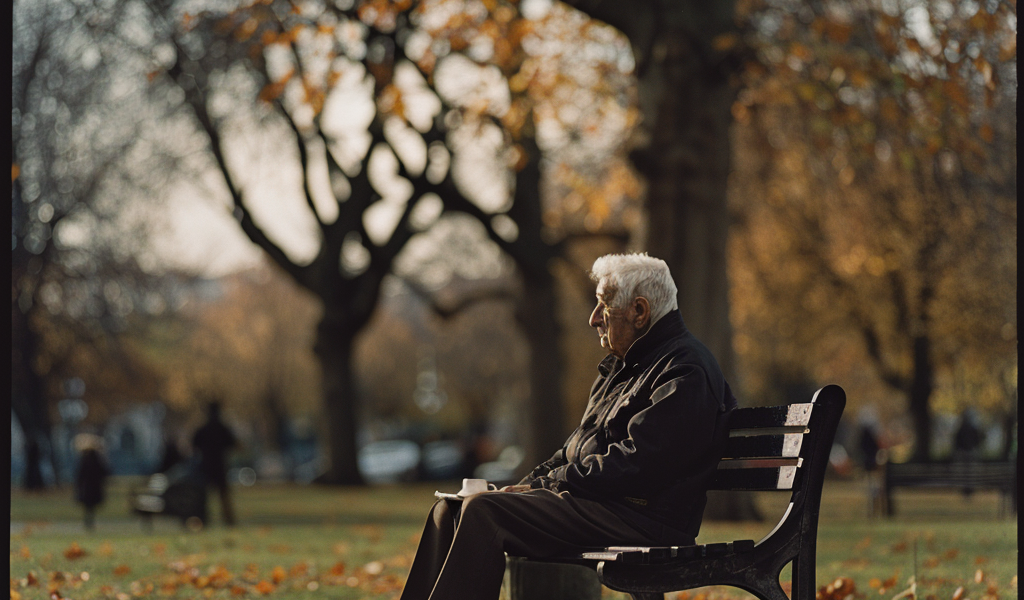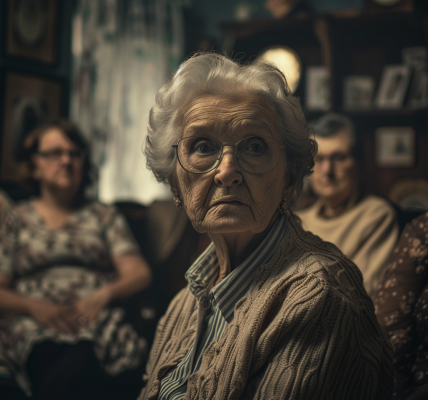Recent research has unveiled a significant link between chronic loneliness and an increased risk of stroke among adults aged 50 and older. This study, conducted by researchers from Harvard University and published in eClinicalMedicine, highlights the pressing issue of loneliness in the aging population and its potential health implications.
According to the findings, older Americans who reported experiencing chronic loneliness over a four-year period were found to be 56% more likely to suffer a stroke within the following 10 to 12 years. This alarming statistic underscores the need for further investigation into how feelings of loneliness may contribute to the development of strokes, which occur when the brain is deprived of essential oxygen and nutrients.
In a broader context, U.S. Surgeon General Dr. Vivek Murthy has previously raised concerns about what he describes as an epidemic of loneliness and social isolation affecting the nation. Data from the National Poll on Healthy Aging reveals that approximately 30% of older adults occasionally feel lonely, while 5% report experiencing loneliness very frequently. This growing trend warrants a closer look at the mental and physical health ramifications of loneliness.
While loneliness has been associated with deteriorating mental health and cardiovascular issues, the specific relationship between loneliness and stroke has not been extensively studied until now. Yenee Soh, ScD, a research associate at the Harvard T.H. Chan School of Public Health and the lead author of the study, emphasized the importance of recognizing and addressing feelings of loneliness. She stated, “Our findings suggest that individuals who experience chronic loneliness are at higher risk of stroke. It is important to routinely assess loneliness, as the consequences may be worse if unidentified and/or ignored.”
The research team utilized data from the Health and Retirement Study, which involved 12,161 participants over the age of 50. This longitudinal study surveys a nationally representative group of approximately 20,000 individuals. Between 2006 and 2010, participants completed the Revised UCLA Loneliness Scale, a tool designed to measure feelings of loneliness and social isolation.
Dr. Soh explained the distinction between loneliness and social isolation: “Loneliness is commonly perceived as a subjective experience, reflected as the gap between desired and available relationships. Social isolation, on the other hand, typically refers to the lack of social contact with others.” This nuanced understanding is crucial for developing effective interventions to combat loneliness.
During the study, participants who remained involved filled out the loneliness assessment again between 2010 and 2012. Those who scored above six on the assessment were categorized as experiencing a high level of loneliness. The researchers continued to track the participants until 2018, during which time 1,237 individuals experienced a stroke.
For participants who completed only one assessment, the results indicated that those with a high level of loneliness at the baseline were associated with a 25% higher risk of stroke. This correlation reinforces the need for healthcare providers to consider loneliness as a significant factor in assessing the overall health of older adults.
As the population ages, addressing the issue of loneliness becomes increasingly critical. Experts recommend that healthcare professionals routinely evaluate loneliness in their patients, particularly those in older age groups. By identifying individuals who may be struggling with loneliness, interventions can be implemented to foster social connections and improve overall well-being.
In addition to health assessments, community programs aimed at reducing loneliness among older adults are essential. These programs can include social activities, support groups, and initiatives designed to connect individuals with one another, thereby combating feelings of isolation.
The implications of this research extend beyond individual health; they highlight a societal challenge that requires collective action. As communities strive to create inclusive environments that promote social interaction, the potential benefits for public health could be profound.
In conclusion, the link between chronic loneliness and an increased risk of stroke in older adults serves as a wake-up call for individuals, healthcare providers, and society at large. By prioritizing mental and emotional health, especially among aging populations, we can work towards reducing the prevalence of loneliness and its associated health risks.





